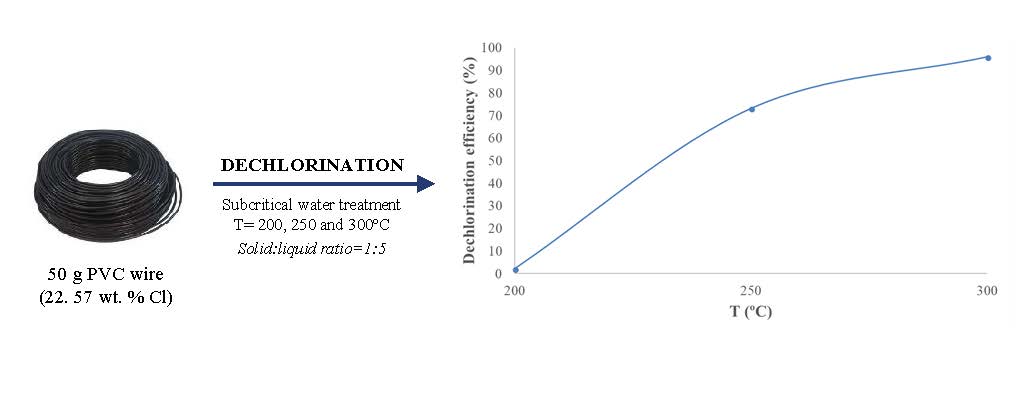Polyvinyl chloride (PVC) electric wires were subjected to dechlorination in subcritical water at three different temperatures in a high-pressure reactor. About 2.09, 73.08 and 95.96 wt. % of chlorine in PVC wires was removed during dechlorination at 200, 250 and 300 °C, respectively. The solid residues were analyzed and characterized by thermogravimetry, at three different heating rates (5, 10 and 20 °C/min) in inert and oxidizing atmosphere. With the purpose of studying the emission of chlorinated pollutants, pyrolysis experiments at 850 °C were also performed in a laboratory scale reactor with the dechlorinated materials, as well as with the original PVC electric wire. Polycyclic aromatic hydrocarbons (PAH) formation increased, but chlorobenzenes (ClBz) and chlorophenols (ClPh) formation decreased as the temperature of dechlorination increased; naphthalene was the most abundant PAH and monochlorobenzene and monochlorinated phenols (3-+4-) were the most abundant chlorinated compounds.

